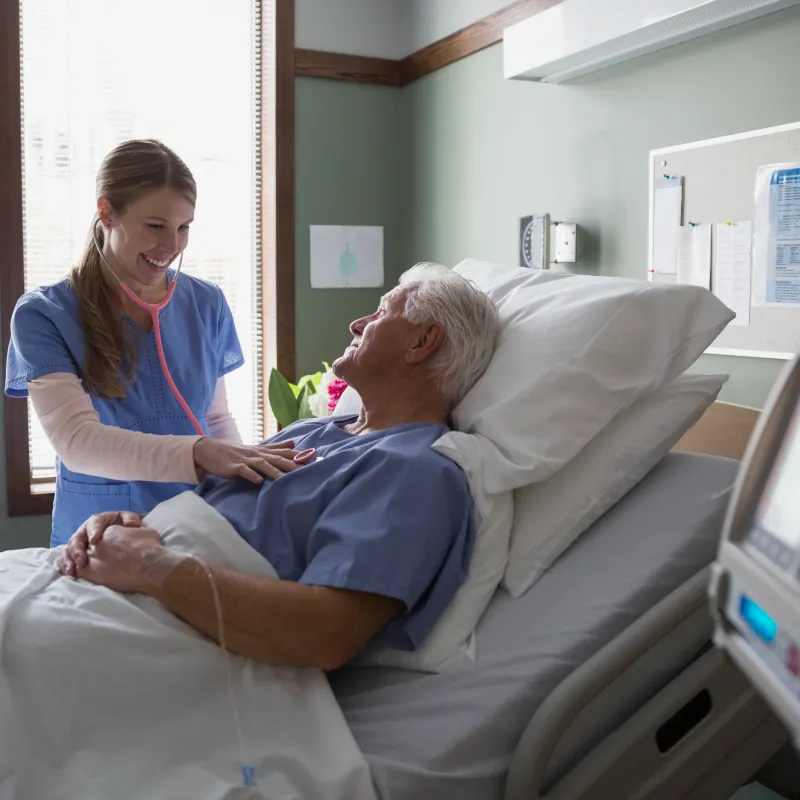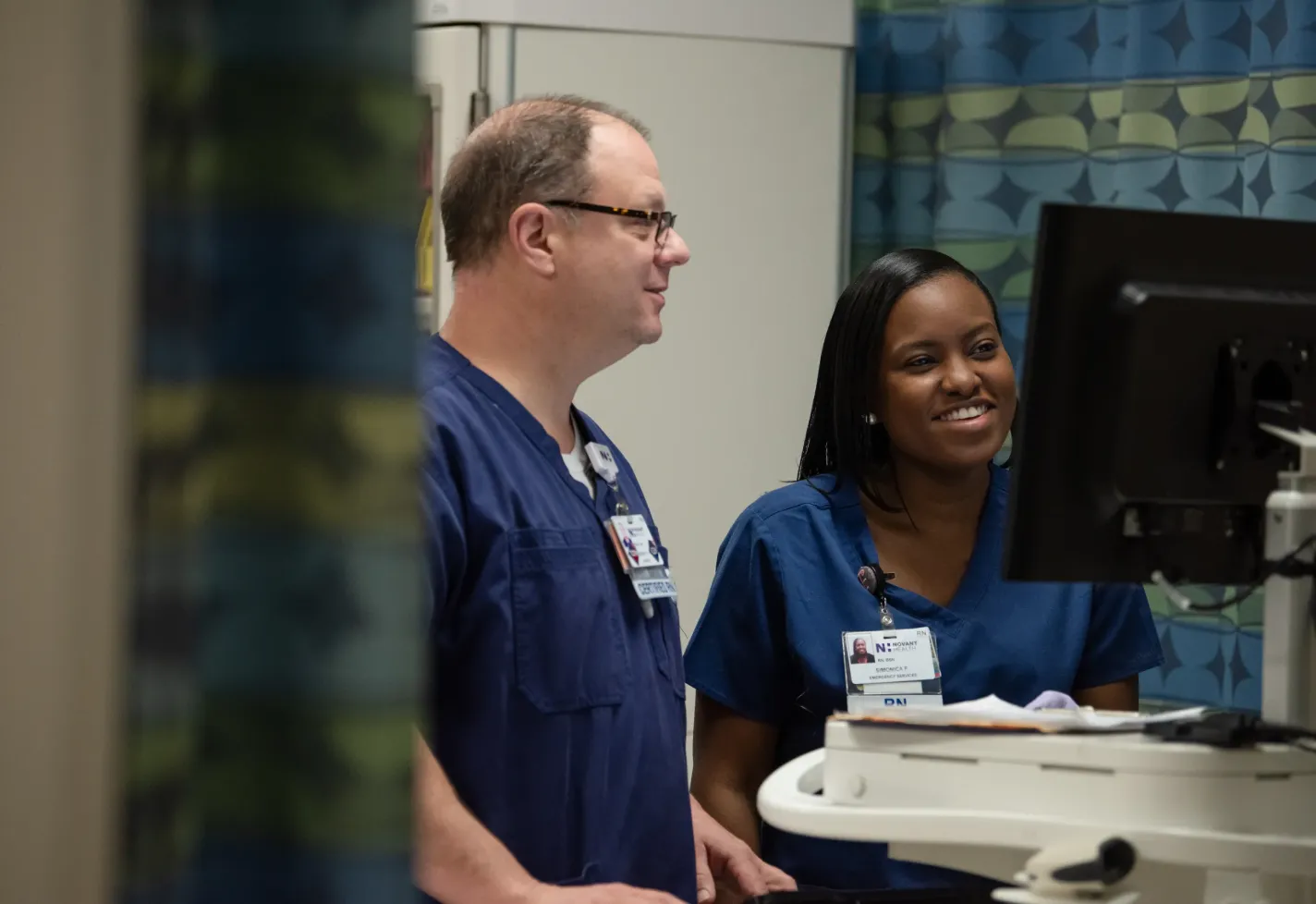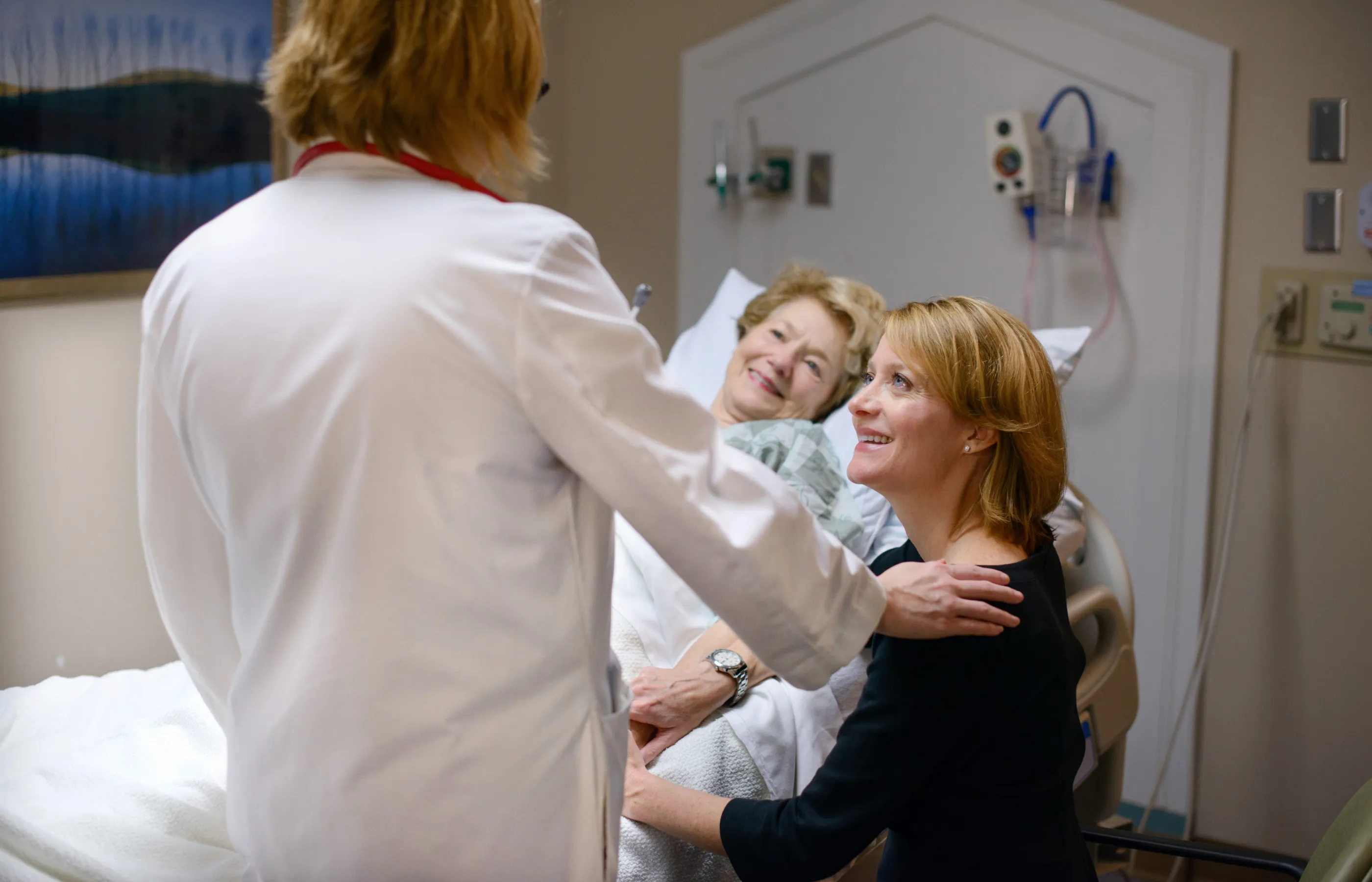Inpatient Care
Compassionate, expert care you can depend on
Your stay at a Novant Health hospital may occur from surgery, childbirth or its complications, traumatic injuries, or other medical conditions. Our round-the-clock care by our team of inpatient specialists helps you recover until you are well enough to go home.
Your well-being and recovery are at the center of every decision we make. You can expect compassion and quality care from your inpatient team members across all our medical practices.
Whatever your reasons for inpatient care, you can trust us to make the right decisions, pay close attention to every detail, and put in the time for your care and comfort every day you are with us.
Your care team
Hospitalists
Our hospitalists are physicians assigned to supervise your care and treatment while you are in the hospital. Your primary inpatient physician works during the day and is called your “attending physician.” Another hospitalist cares for you overnight and receives briefings about your care from your attending physician. Your hospitalists will communicate with your personal physician or specialists to make sure important medical information is shared.
Intensivists
Depending on the reason for your hospital stay, you may be assigned a specialist—called an intensivist—who will work with your attending physician. Intensivists are critical care specialists who may have expertise in internal medicine, pulmonology, neurology or cardiology. They provide expert care for the sickest patients who are suffering from multiple organ failures.
Your Hospital Stay - What to Expect
Getting to know you
When you are admitted to a Novant Health hospital, a team of doctors, physician assistants, nurse practitioners and nurses, our inpatient care specialists, will learn more about you.
Your attending physician will see you daily to direct your treatment. During your Novant Health hospital stay, you will receive the highest standard of inpatient services in our intensive care, surgery, maternity and other specialty units.

Sharing your condition
We personalize your care. Our social work team members will engage you about any needs you have and whether you would like to share your treatment plan with a family member.
With your permission, we will keep your loved ones updated on all aspects of your care and diagnosis. We believe in honest and transparent communication between you and your care team always.

Coordinating your care
Inpatient clinical teams communicate regularly during your hospital stay. Inpatient team members also communicate daily with you and your primary care physician about your progress.
Prior to discharge, your attending physician will contact your personal physician to share details about your continued care plan and medications. A follow-up visit with a Novant Health primary care physician will be arranged, if you do not have one.

Inpatient Care Units
While you are an inpatient at a Novant Health hospital, you will be cared for in one of our designated medical units:
Medical surgical unit
This is the most common type of hospital unit where you are recovering from illness or injury or in need of additional care after surgery.
Specialty units
Most of our hospitals have specialty medical surgical units that are focused on treating specific health conditions, including cancer, heart disease, pulmonary distress, behavioral health, maternity and brain and nervous system conditions.
Intensive care units
Many Novant Health hospitals have intensive care units (ICU) to provide critical care if you or a loved one is facing a life-threatening illness.

Nicholas Friedman’s ICU Story
In the summer of 2021, Nicholas Friedman, then 17, began to have a series of headaches, followed by numbness. He went to Novant Health Presbyterian Medical Center, where he was admitted for aneurysm surgery that saved his life.

Tele-ICU – How it works
Novant Health uses monitors in ICU rooms that allow critical care team members to respond virtually and at your bedside. Our team responds in seconds to any condition that demands an urgent response or assessment.
